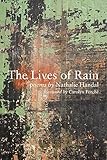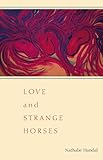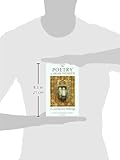Foreword by Editor
“We understand we can’t repeat what God tells us.”
These six “flash reportages” by Nathalie Handal offer us new ways to think about both poetry and journalistic documentation. The project began, she writes, “as a personal account of my relationship to the island of Hispaniola—Haiti and the Dominican Republic—and moved to the voices I encountered because they were louder than mine.”
Indeed, there is a roving "I" that seems to embody the consciousness of the speakers as well as the consciousness of the one to whom they are speaking, a dialogue of observers as they share a voice for the space of the poem. The poems seem to grow from out of the struggle that this intertwinement creates, as if the force of the poems was in their efforts to unravel themselves, to take themselves apart. If there is a will toward understanding in these poems, it is a will whose ambition is to think from the object which they attempt to understand. But in a world where the colonial subject has become the subject itself, a subjectivity that we all share, the reason that the poems seek comes in enmeshment, in insertion rather than objectivity.
In these poems we might find the conflicting struggle of the desire to understand from outside (what “we” always thought understanding was), and the desire to understand through being in in the body and in a story, in a place where there is not time enough to think. The form these poems take become this contest, as they fuel themselves on the friction that the entwinement of the speaker and the spoken create. Ourobouros-like, the poems feed upon this entwinement as energy, as they make the bid to extricate themselves: In these poems, no one can unenmesh themselves: not the writer nor the oppressors, nor the victims of their violence: ’I see them trying to interrupt his voice buried inside their heads.”
Concerned with bringing to consciousness those subtle operations of the intellect upon bodies by which we think we know the world, by which we think, these poems offer a critique of thinking. If what “we’ve” (whoever the “we” is) “come to master” is “a place where stares measure a country,” here we see the country (the country of Haiti, and the concept of country in general) as an element of intellectual practice that has risen up in the form of the eye which figures it, looking back upon the history which it has created. And something, then, escapes vision, escapes thinking, escapes all theory-making. The paradox, then: how can we talk about the thing that we can’t think? Thus, the constant, endless, circumambulation of these poems around themselves, and the feeling of bodies pulsing through them.
We might take the two Haitian folkloric characters Bouki and Ti-Malis, which appear in the fifth of these poems, as emblems of the way these poems inhabit the world: Bouki is, as the poems call him, “the dumb one”: the gullible and faithful foil to the scheming, often malicious Ti-Malis. Appearing, as they do, in the account of the kidnapping and rape of a twelve year old girl, and the torture and death of her father, at the hand of zenglendos—gangs often with affiliations with the military or the police— the two characters point out some of the deepest contradictions involved in meaning-making. After her rape, after her father, who has come to attempt to ransom her with what money he has, has bled to death from having his tongue cut out, the girl, the speaker tells us “wished she liked Bouki instead of Malis—it’s better not to understand too much sometimes.”
Perhaps the most horrifying thing, then, that these poems offer us, is not in the way in which thinking is silenced, but in the way the silence of not-thinking is silenced in its turn, and in the way one silence is indistinguishable from another:
“If we stay unfound—why wonder if forever exists, if the heart is not ready for the soul…”
In the era of the colonial subject, staying unfound is no longer an aspiration but an imposition; and the wisdom that could result from not being found, from not being seen, from remaining in, is made mute. This may be what the intertwining of voices and vision in these poems bring us almost to say as we read them.
— by Noam Scheindlin
SIX “FLASH REPORTAGES” BY NATHALIE HANDAL
Galaxy of Men
Ask the farmer why he tolerates his master, ask the beggar why he pities himself, ask the thief to ask the moon why he fears them both. Perhaps it’s about who inherits sadness best? Ask the priest when the fighter will come, ask the boy what happens when prayer does not save its lines—those who know don’t speak. Subtract sound from song, subtract color from skin, from the hissing bullets that hit a telephone pole and make a nation stutter. That’s what we’ve come to master, a place where stares measure a country.
As We Wait
It’s not death, it’s the humidity that blinds us from who we have become, an old man tells me. And I think, where is the rain? What begins to beg begins as people wait. If we stay unfound—why wonder if forever exists, if the heart is not ready for the soul, if music just shows the way we starve, if saints disagree where to place us, if soldiers replace regret with leisure, if forgiveness is just a shadow split into two, if being alone is a way of reminding us we will never see the full moon? The streets are full of people without wallets or pictures; foreign languages competing for space. The news is at the edge of our fear. I start to run. And then I see the cross. It’s still standing, le Marron inconnu still standing. I stop. That’s how I choose to wait, to catch what aches in beauty.
JanJak
They stopped kicking him. They left him in the trunk. The sun burning onto it and inside. The engine on. There was hell in their minds. They filled their hearts with bones and skulls as his body burned. Every time he turned his flesh peeled. When they finally opened the trunk, they stared. Asked themselves how far they would have to run to keep him away. You see, what they didn’t know was his name—Janjak, after the first ruler of Haiti. He knew how to get his independence. They say I look like him, like my father, so when they see me, they run. The truth is, when they are not watching, I see them trying to interrupt his voice buried inside their heads.
Frantz
Where should I place regret? Where should I touch you so you can stop disappearing? As I try to memorize single notes, a cold mountain air spins around me. What do I look like in those seconds that pass fast? Why am I here? To steal music. To know it spilled inside of me and told me resurrection is a way of sighing. You shouldn’t pray if you don’t pray properly, my mother always told me. But please Lord, rearrange the mist, the heat rising from my back. Lord, let me still kneel. Lord, let me still sing. Lord, most of all, make them never ask me to show my face. You left me what love you could on the skyline, what mercy wouldn’t cut me open. But what if our dream is nothing but a soul trapped in a bordello? The ruin of a detached anthem? History and nightmare forget to imagine properly a cockfight. A record by a machete. Fields burnt, skies black. Hands cold. Words dry. It’s envy that destroys us mostly. Or la volonté de dieu. A room half lit with anger. The sky grayer. I could almost smell the rain. Magic doesn’t exist this far away from a town or a myth. Shut the windows, pull down the curtains, wave goodbye. Mon frère, turn the fan on. She’s never coming back.
Ti Malis
He tells me while biting his nails: My sister loved to hear stories of Bouki (the dumb one) and Malis (the smart one)—the two most popular characters in Haitian folktales. Her big black eyes with long eyelashes would widen while she listened. She also loved her uniform—navy blue. She wore it proudly to school. My father dropped her off and picked her up every day to protect her from zenglendos. That day, he couldn’t pick her up and asked me to do it. I got there late. They took her. Wanted money to give her back. But what money does a poor man have? My father gave everything he saved—126 dollars, three years work. They raped her while counting the money. She was twelve. They raped her and made him watch. One man after another. One day after another. Even hell couldn’t be this cruel. They say the prophet can appear at any time. But one week went by. By then, she had gone somewhere in the back of her body. Her yellow ribbon still in her hair. It was the last time my father ever saw her. They pulled both his eyes out with a knife, but he could still hear her agony. One day he screamed her name, and heard her respond faintly, papa. They cut his tongue and threw it at her. She held his tongue tight while they raped her again. That’s the last time she saw the dark room. The men left. She found her father on the floor—he had bled to death. All that for a few dollars. She curled next to him and wished she liked Bouki instead of Malis—it’s better not to understand too much sometimes. When I found her, she asked me to tell her the story Bouki Steals Marie Louiz. It is about a baby girl born so beautiful her mother did not want anyone to see her in fear they would steal her. And then her eyes shut. I know all of this, Miss, because one of the men told me. He killed himself when he found out his mother knew what he’d done. All I know, Miss, is that misery burns the soul.
Glory
I was told God is in my blood, or was that an American myth? Maybe breathing is a myth too, and oxygen and drowning and choking, maybe Malcolm X and Mohammed didn’t tell us something we needed to know, like how to knock a cow down in the middle of the road, or what to do with divine intervention, angels filling our gut, voices growing loud in our sleep. Maybe we have lost all directions as our bones crumble in our hands and marbles crush under our feet. So tell me, where is the way to Babel or Jacmel, to the place where flies and medicine leaves, ditches, bowstrings, skulls, don’t exist, where we can risk touching our lover’s heart, risk counting names and the tapping of his fingers against legs like light growing on flesh. Who knows where we are, or if what dazzles us is the sentence God never gave us—you know, that thing that says something about rambling on, about sudden death, about phantoms and the banging of heads on walls, that thing that doesn’t live because of jealousy but misery. We understand we can’t repeat what God tells us.
Nathalie Handal’s most recent books include the critically acclaimed Poet in Andalucía, which Alice Walker praises as “poems of depth and weight and the sorrowing song of longing and resolve,” and Love and Strange Horses, winner of the 2011 Gold Medal Independent Publisher Book Award, which The New York Times says is “a book that trembles with belonging (and longing).” She is a Lannan Foundation Fellow, winner of the Alejo Zuloaga Order in Literature, and Honored Finalist for the Gift of Freedom Award, among other honors. Her work has appeared in Vanity Fair, Guernica Magazine, The Guardian, The Nation, Virginia Quarterly Review, and other publications. She writes the literary travel column The City and the Writer for Words without Borders. Her new collection The Republics, is forthcoming Spring 2015.



